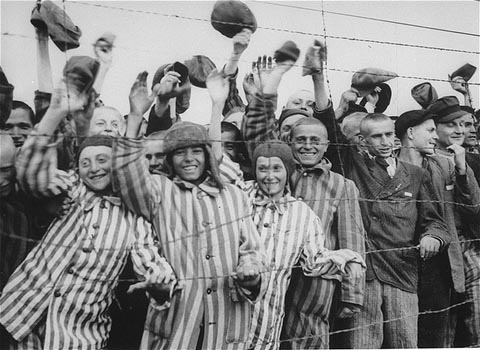Prompt: How do Elie's experiences during the Holocaust change him as a person?
Night by Elie Wiesel
One way Wiesel changed throughout the book is his belief in God. Toward the beginning of the book Wiesel was very pious. Toward the end of the book he started to question God's existence. The book states, "For the first time, I felt revolt rise up in me. Why should I bless His name? The Eternal, Lord of the universe, the All-Powerful no Terrible, was silent. What had I to thank Him for?" Page 31. This shows that Wiesel had nothing to thank God for, because what was going on was so terrible. At this point in his life he questioned God's existence, because if God was really looking after him then these things that happened to innocent people couldn't have happened. The memoir also states,"Never shall I forget those moments which murdered my God..." This shows that from Wiesel witnessing these horrid events, he felt as if God wasn't doing anything to help. This made Elie's belief for God pretty much dead. It also made Wiesel feel like God has failed him.
Another way Wiesel changed throughout the book was the way he saw himself. In the beginning of the book Wiesel was still human. This meaning that he was still very healthy, and has not yet experienced tragic life changing events. In the book it states, "Never shall I forget those moments which murdered my God and my soul and turned my dreams to dust." Page 32. This shows that because the events he witnessed were so terrible, his soul was gone and he was a different person. Toward the end of the book Wiesel talks about how he looked in the mirror and saw himself as a corpse. This shows that he didn't even see himself as human anymore. Also he said in the book that once he was free they did not think about family at all, but food instead. This shows how the Holocaust changed his life, because he was acting as is he was an animal, and saw his soul as someone who was dead.
Another way Wiesel changed throughout the book is his relationship with his father. The beginning of the the book showed how he was scared to be apart from his father. He was so afraid that him and his father would be separated from each other, because then he would be all alone. This showed that he really was dependent on his father to make him feel safe. Also at this time his father was the only one in his family who survived, and he didn't want to lose his whole family so soon. Near the end of the book he still deeply cared for his father and his father's health, but he felt as if he was only dragging him down. Since Wiesel's father was on the verge of dying Wiesel often felt as if the roles had switched, and now he was the one taking charge and trying his best to keep his father alive. Wiesel even prayed to not become like Rabbi's son who left his father so he could have a better chance of surviving. In the end he almost did turn out like him even though it seemed like he didn't want to admit it. When his father died he was upset, but Wiesel says that he didn't cry. This shows that at that moment family didn't matter as much as getting healthier, and being glad that he was finally free.





